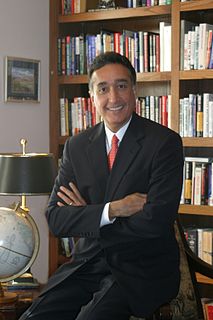A Quote by Pema Chodron
At some point, we realize that what we do for ourselves benefits others, and what we do for others benefits us.
Related Quotes
The remarkable thing is that we really love our neighbor as ourselves: we do unto others as we do unto ourselves. We hate others when we hate ourselves. We are tolerant toward others when we tolerate ourselves. We forgive others when we forgive ourselves. We are prone to sacrifice others when we are ready to sacrifice ourselves.
Our sense of identity is in large measure conferred on us by others in the ways they treat or mistreat us, recognize or ignore us, praise us or punish us. Some people make us timid and shy; others elicit our sex appeal and dominance. In some groups we are made leaders, while in others we are reduced to being followers. We come to live up to or down to the expectations others have of us.
Nothing can tend so much to humble us before the mercy and justice of God as the consideration of His benefits and our own sins. Let us, then, consider what He has done for us, and what we have done against Him; let us call to mind our sins in detail, and His gracious benefits in like manner, remembering that whatever there is of good in us is not ours, but His, and then we need not be afraid of vainglory or of taking complacency in ourselves.
We would willingly have others perfect, and yet we amend not our own faults. We would have others severely corrected and will not be corrected ourselves. The large liberty of others displeases us, and yet we will not have our own desires denied us. We will have others kept under by strict laws, but in no sort will ourselves be restrained. And thus it appears how seldom we weigh our neighbor in the same balance with ourselves.
Do you think that we're products of our environments? I think so, or maybe products of our expectations. Others' expectations of us or our expectations. I mean others' expectations that you take on as your own. I realize how difficult it is to seperate the two. The expectations that others place on us help us form our expectations of ourselves.
There are only individual people, different individual people, with their own individual lives. Using one of these people for the benefit of others uses him and benefits the others. Nothing more. What happens is that something is done to him for the sake of others. Talk of an overall social good covers this up.
If one benefits tangibly from the exploitation of others who are weak, is one morally implicated in their predicament? Or are basic rights of human existence confined to the civilized societies that are wealthy enough to afford them? Our values are defined by what we will tolerate when it is done to others.
Books are never harmless...they either strengthen us or they weaken us in our faith. Some of them do this even as they entertain us, others as they teach us. In an invisible way their teaching penetrates into our hearts and souls, to continue its work inside, and we inhale the spirit of these books as healing or poisonous vapors. They can bring the greatest benefits and the greatest ruin, for from their ideas that they spread come the deeds of the future.






































